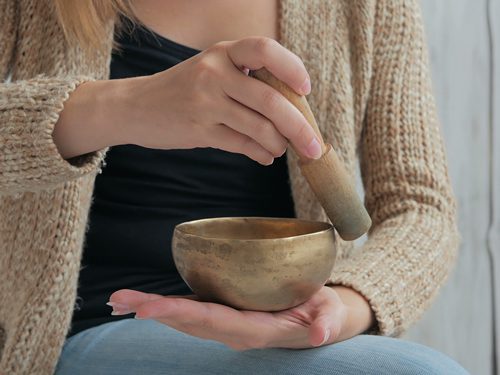Welcome to the second part of our Practicing Recovery series, the section of our blog written for those in recovery from substance use disorders. The series will offer encouragement and guidance for sustaining your physical, mental, emotional, and spiritual health. It will remind you that you are not alone. It will help you cultivate your inner strength, and it will provide information about resources that can support your commitment to wellness.
Please feel free to comment on these posts if you have questions, feedback, disagreements, or advice of your own.
 Meditation Q & A
Meditation Q & A
So you’ve started meditating. Every day, you practice observing your thoughts and feelings and then moving beyond them to stillness. You feel good about yourself at first, but then your thoughts overpower you, you get discouraged or bored, and before you know it, you’ve stopped the practice. If this sounds familiar, you’re not alone.
Remember, be patient with yourself. Don’t let your thoughts about meditation (I can’t do it, it’s not for me, it’s not making me feel any better) keep you from trying. Below are our responses to common questions about meditation.
I can’t stop thinking. Is there any point in sitting here if I can’t shut down my brain?
First, join the club. Your mind doesn’t want you to meditate. It wants to be the center of your attention at all times, so expect it to throw all kinds of noise at you when you try to meditate. Set an intention before you meditate (e.g., “I intend to use this time to observe, detach, and surrender”). If your thoughts continue to clamor, don’t fight them—but don’t participate, either. Don’t let yourself get caught up in their drama. Detach and watch them as an observer. If you have to remind yourself to do this seventy times in five minutes, that’s okay. Stay calm and keep practicing.
Meditation is boring. I can be still and observe my thoughts, but it starts to feel like a waste of time.
Often, we use boredom or restlessness as a way to avoid some emotion we’d rather not deal with. If we get restless, we move on before that emotion—usually anger or fear—surfaces. If you can stand it, stay in the boredom. Observe it. If you feel brave, ask where it’s coming from. Then, listen.
Meditation puts me to sleep. Is that okay?
Different practitioners will have different answers to this question. We say don’t worry about it. Sleep is healing. When you wake up, give yourself a few moments to consciously enjoy the silence before getting on with your day. That said, sometimes sleep is like boredom (see above): a defensive reaction to protect us from a feeling we don’t want to face. If you find that you fall asleep during every meditation, even when you’ve been sleeping well at night, you might try setting an intention: “I intend to stay awake while meditating today so I can learn what triggers my sleepiness.”
I’ve been meditating for a while now, but it doesn’t help. I still have cravings, still give in to them, still behave badly sometimes. What am I doing wrong?
The goal of meditation is not to become perfect. The goal is to stop judging anything as good or bad. By continuing to practice observing your thoughts, you will also become an observer of your life. You will see that what you do is not who you are. You will be more compassionate toward yourself, not getting caught up in thoughts of judgment, guilt, or shame. You will learn to let yourself be, as you let your thoughts be. You will learn compassion for others and develop the ability to observe their behavior without judging them.
I don’t deserve peace. I don’t deserve to feel good about myself, even a little bit, after what I’ve done and who I’ve hurt.
Recognize those thoughts as more mind-stories. As such, they are false. Instead of believing them or fighting them, just acknowledge them and redirect your attention. Remember that the peace you have inside you is beyond thought. Remember, too, that finding peace in yourself will positively affect everyone around you.
Part of me likes the drama of my mind’s stories. Even though my stories are painful, life would be boring without them, right?
It’s true: we sometimes struggle and suffer because we unconsciously want to struggle and suffer. The struggling and suffering reward us in some way that feels better than the alternative, no matter how much pain we are in. We may also fear a life without suffering. Would we make the most of it? Would anyone like us anymore? Meditation will eventually bring these unconscious assumptions to the surface where you can acknowledge and learn from them.

